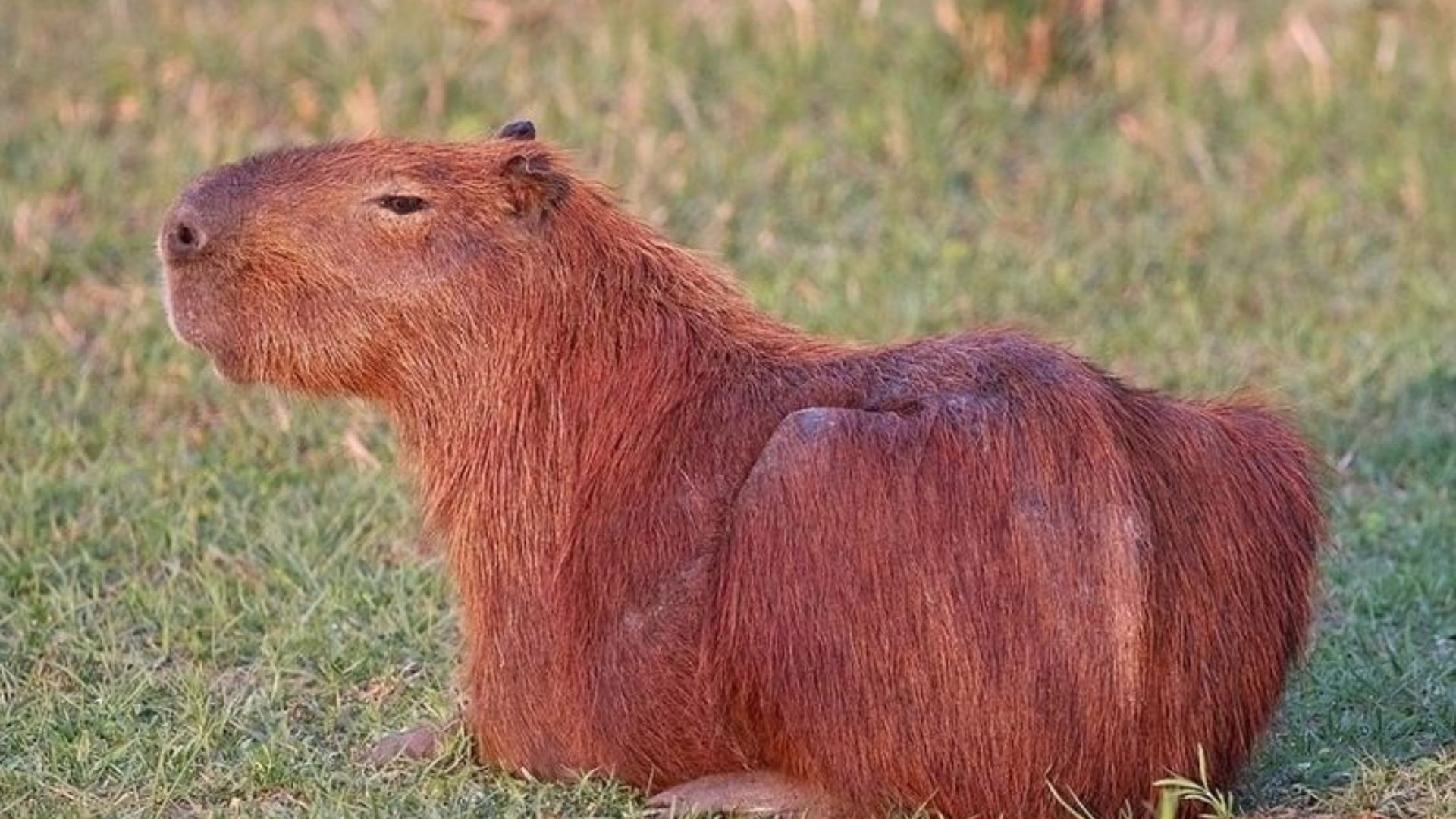Capybaras, the world’s largest rodents, are gaining popularity as exotic pets, thanks to their gentle nature and social charm.
However, owning a capybara isn’t as simple as adopting a cat or a dog. Legal restrictions vary significantly from state to state, making it essential for prospective owners to do their homework.
In the United States, only a select few states allow capybaras as pets. Here’s a closer look at where you can legally welcome these fascinating creatures into your home, along with some key considerations for responsible ownership.
1. Texas
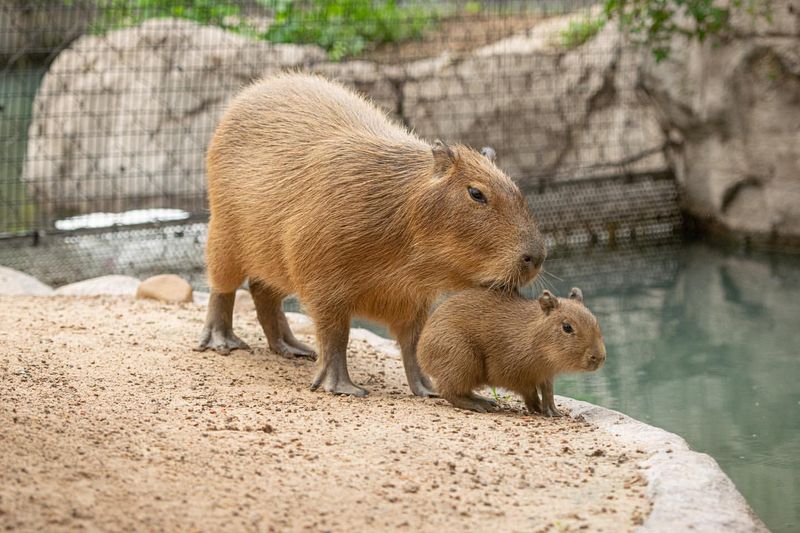
In Texas, capybara enthusiasts find a welcoming environment due to the state’s lenient exotic pet laws. The warm climate, similar to the capybara’s native habitat, makes Texas an ideal place for these animals.
Prospective owners should ensure they have ample outdoor space, as capybaras thrive in environments that mimic their natural surroundings.
Additionally, it’s crucial to provide a water body like a pond or pool, as capybaras are semi-aquatic mammals that enjoy swimming. Owners should be prepared for the responsibility of caring for a large rodent, including understanding their dietary needs and social nature.
Texas does not require a special permit to own a capybara, making the process relatively straightforward. However, it’s advised to check with local regulations, as some municipalities may have their own restrictions.
Overall, Texas provides a supportive legal framework for those interested in capybara ownership.
2. Florida
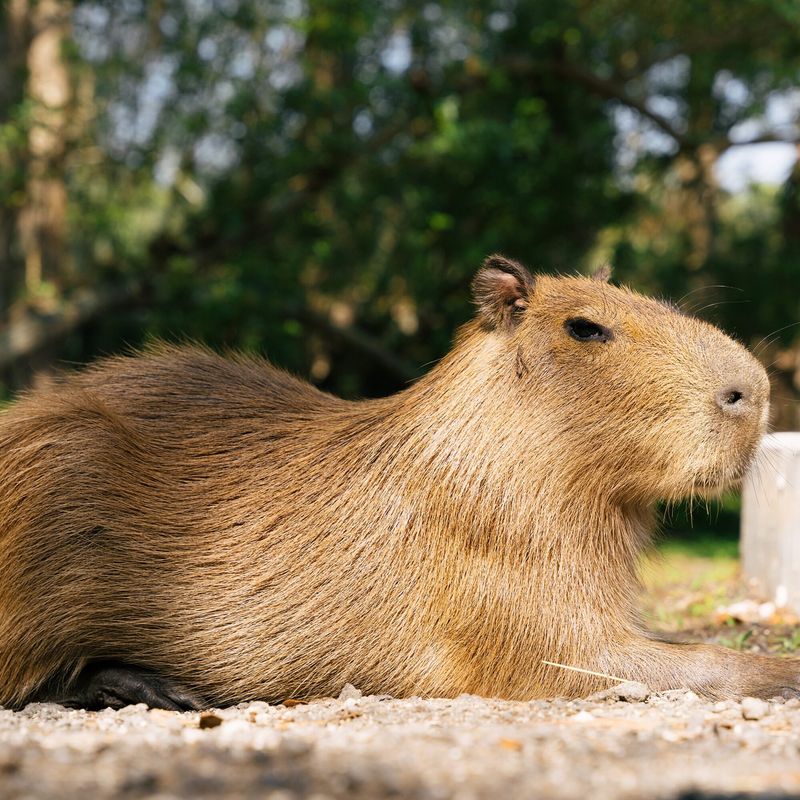
Florida, with its tropical climate, closely resembles the capybara’s natural habitat, making it a popular state for capybara owners. The state allows ownership without a special permit, though local laws may vary, so checking with city or county regulations is essential.
Capybaras find Florida’s warm weather suitable, but they require a setup that includes a water body and sufficient space to roam and graze. Owners should be aware of the commitment involved in caring for these social animals, which often do best in pairs or groups.
Feeding a capybara requires a specialized diet predominantly consisting of grasses, and ensuring regular veterinary care is crucial to monitor their health.
Florida’s environment provides a natural backdrop for capybara owners, but potential owners must be diligent in providing a safe and enriching home for these gentle giants.
3. Pennsylvania
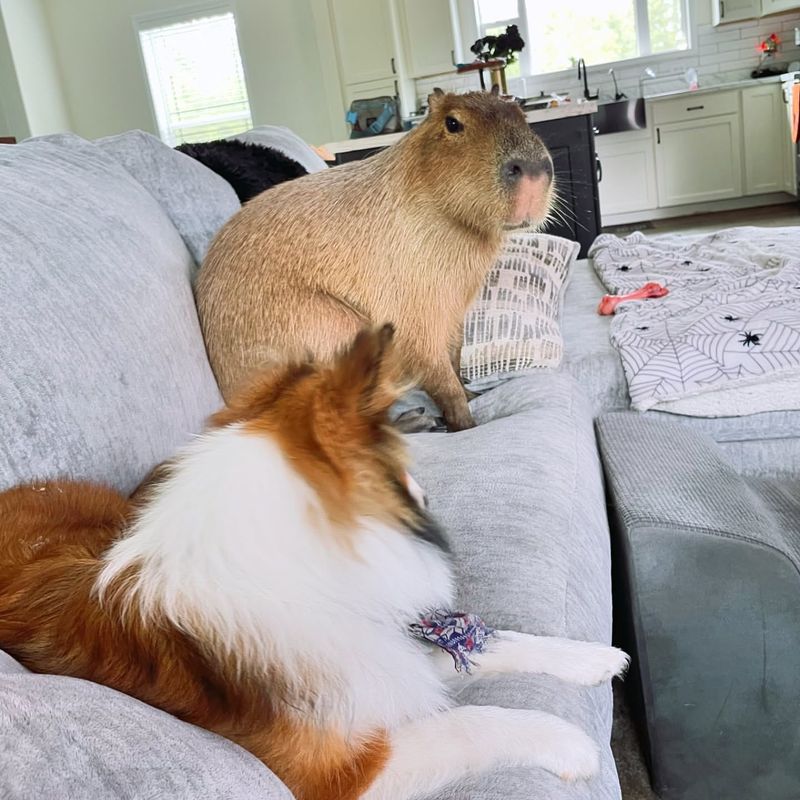
In Pennsylvania, owning a capybara is legally permissible with certain conditions. The state requires potential owners to obtain a permit, ensuring they meet specific criteria to care for these exotic pets.
Despite the colder climate, capybaras can thrive if provided with a proper indoor and outdoor setup. A heated indoor space is necessary for the frigid winters, while a pond or pool is essential for their aquatic lifestyle.
Prospective owners must be ready for the responsibility, ensuring they can meet the animal’s social and dietary needs. Capybaras need companionship, often from their own species, to prevent loneliness. They also require a diet rich in grasses and vegetables.
Pennsylvania’s permit system ensures that capybara owners are well-prepared, offering a regulated environment for those committed to providing appropriate care.
4. North Carolina
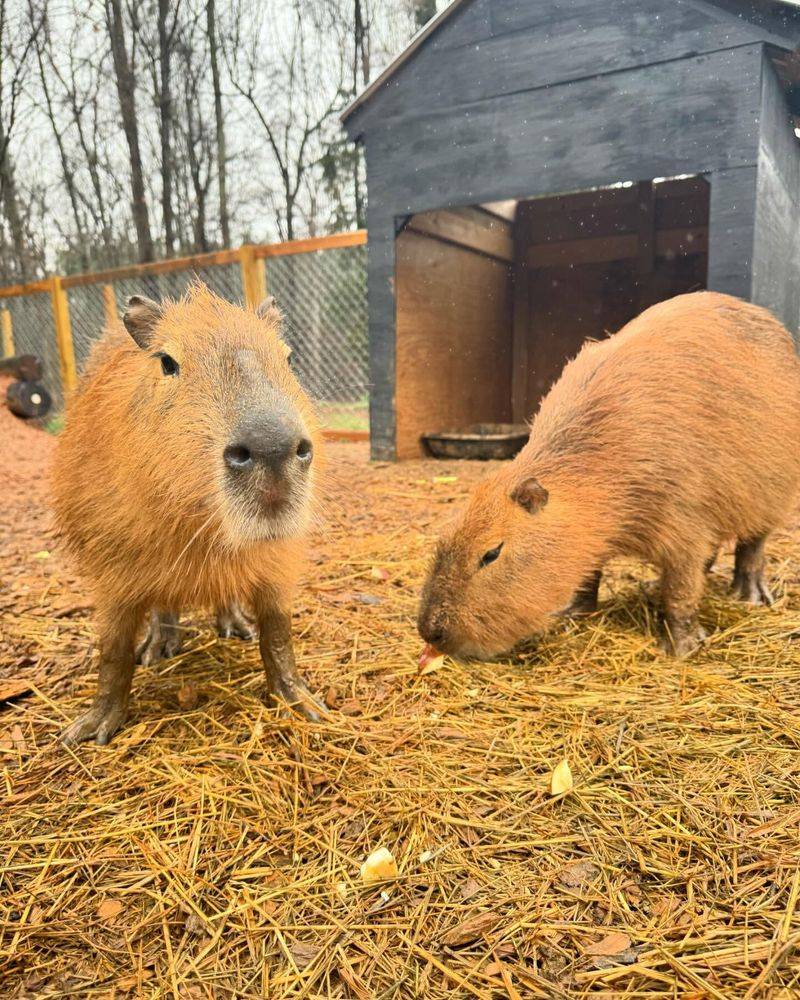
North Carolina permits capybara ownership with relatively few restrictions, offering a friendly environment for those interested in exotic pets. The state’s mild climate suits capybaras well, though owners must ensure their pets have access to both land and water environments.
A critical aspect of ownership is providing social interaction, as these animals are highly social and often require companionship to thrive.
Owners should also have a comprehensive understanding of their pet’s dietary needs, focusing on hay and fresh vegetables. Although North Carolina does not demand specific permits for capybaras, it’s important for owners to confirm any local regulations that might apply.
The state’s supportive stance allows capybara enthusiasts to create enriching habitats, making it a great option for those committed to responsible pet ownership.
5. Nevada
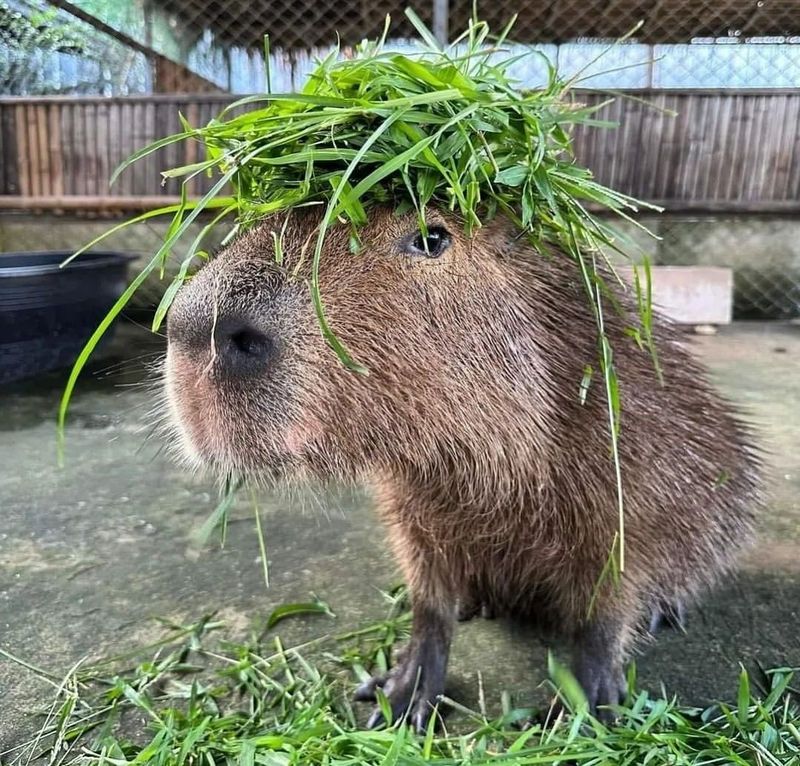
Nevada is known for its liberal stance on exotic pet ownership, including capybaras, which can be owned without special permits. The state’s arid climate requires owners to create suitable environments, balancing both dry land and water features.
Capybara owners in Nevada should prioritize setting up a pond or pool, as these animals are semi-aquatic and need regular access to water for bathing and swimming. A spacious outdoor area with shade is also important to protect them from the intense sun.
Providing a balanced diet and regular social interactions are key to keeping capybaras happy and healthy.
While Nevada offers freedom in owning these unique pets, responsible ownership demands a commitment to meeting their environmental and social needs, ensuring a fulfilling life for these gentle giants.
6. Washington
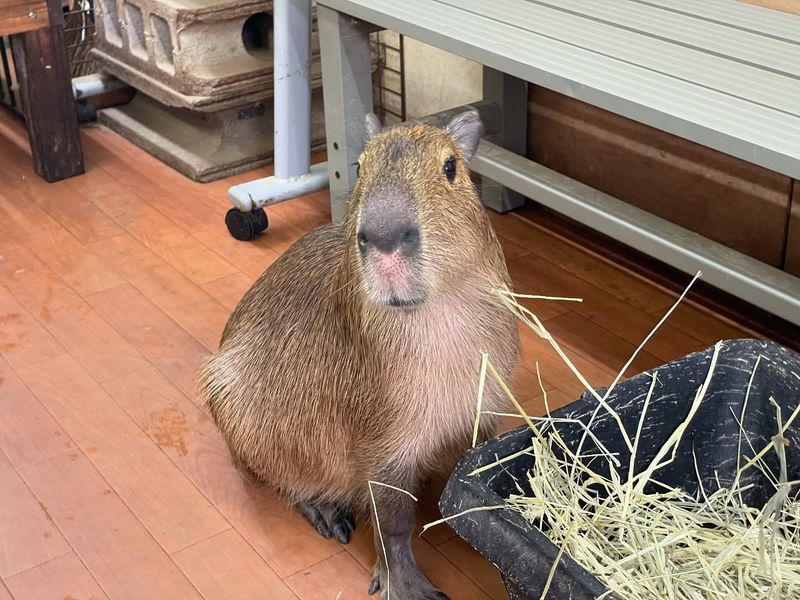
In Washington, owning a capybara is possible, but potential owners must comply with state regulations. This includes obtaining necessary permits and ensuring suitable living conditions for these large rodents.
Capybaras in Washington need a habitat that accommodates their size and lifestyle, including access to water for swimming. The state’s cooler climate necessitates proper indoor housing during colder months to keep them comfortable.
Social creatures by nature, capybaras thrive with companionship, so keeping them with other capybaras is often recommended. Their diet should primarily consist of grasses, with additional vegetables to ensure nutritional balance.
Washington’s regulatory framework ensures that only dedicated and prepared individuals can own capybaras, promoting responsible pet ownership.
7. Oregon

Oregon is another state where capybara ownership is permitted, though it requires adherence to specific regulations set forth by wildlife authorities. This includes acquiring appropriate permits and ensuring a suitable habitat for the animal.
The state’s temperate climate is favorable for capybaras, but they still need a well-maintained pond or water feature for swimming. Adequate shelter during the colder months is also necessary to provide comfort and safety.
Owners in Oregon should focus on replicating the capybara’s natural environment and fostering social interactions, either with other capybaras or regular human interaction.
A balanced diet rich in grasses and vegetables is essential. By fulfilling these requirements, Oregon offers a legal path for those committed to caring for these unique pets.
8. Ohio
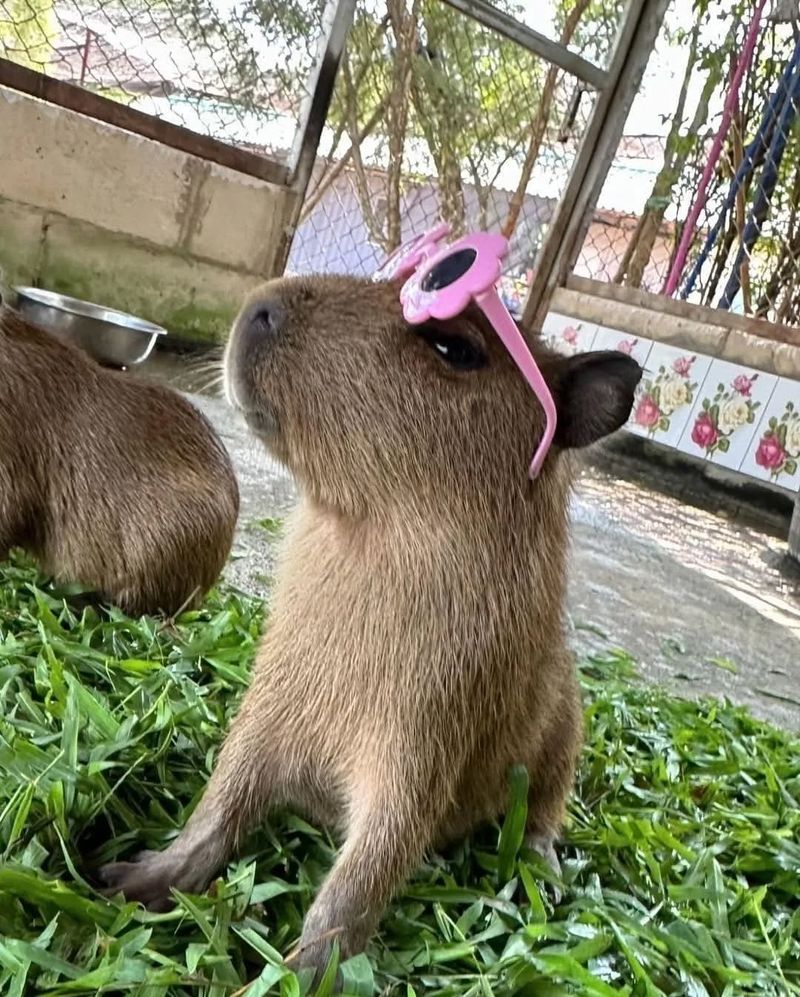
Ohio permits capybara ownership but requires prospective owners to obtain permits, ensuring they meet the state’s requirements for exotic pets. This regulatory approach helps maintain the well-being of both the animals and the community.
Capybaras in Ohio need environments that provide both water for swimming and ample land for exploring. Owners should prepare for colder months with appropriate indoor accommodations to keep their pets healthy.
Socialization is crucial for capybaras, so potential owners should consider keeping them in pairs or groups. Their dietary needs include a variety of grasses and fresh vegetables.
Ohio provides a structured legal framework that supports responsible capybara ownership while safeguarding the animals’ needs.
9. Tennessee
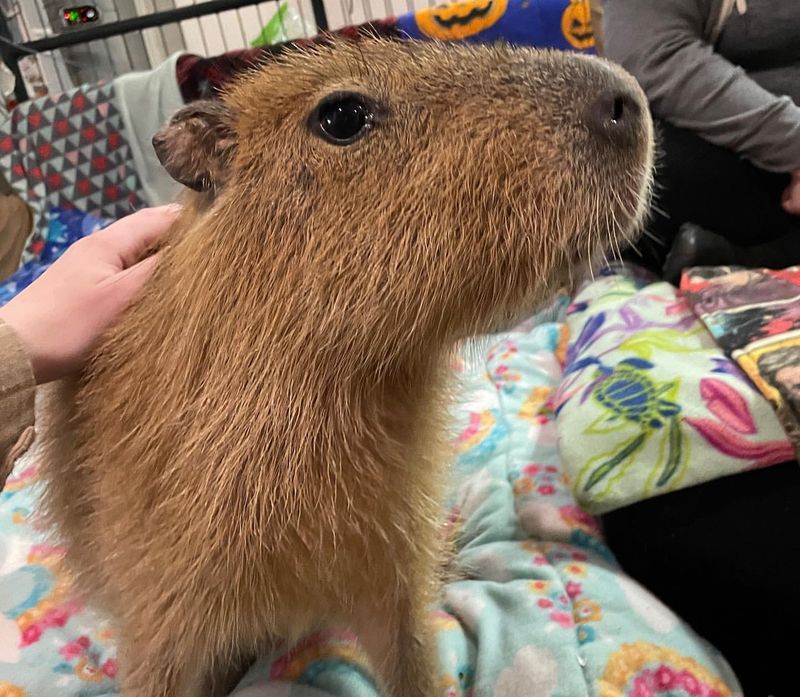
Tennessee allows capybara ownership, making it a viable option for those interested in these unique pets. The state doesn’t require specialized permits, though checking local regulations is advisable to avoid any unforeseen restrictions.
In Tennessee, capybaras benefit from a moderate climate but require environments that include water features for swimming and space for grazing. Ensuring their dietary needs are met with grasses and vegetables is essential for their health.
Capybaras are social animals, and companionship is a key consideration for potential owners. Tennessee’s relaxed approach to exotic pet ownership provides an opportunity for enthusiasts to responsibly care for capybaras, emphasizing the importance of creating a nurturing and stimulating environment.

